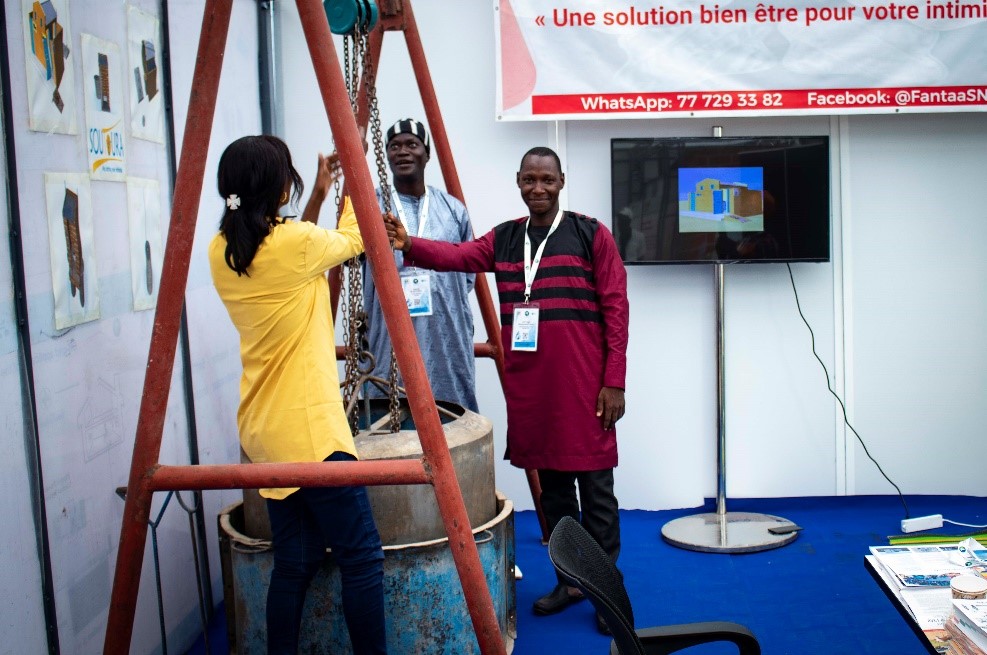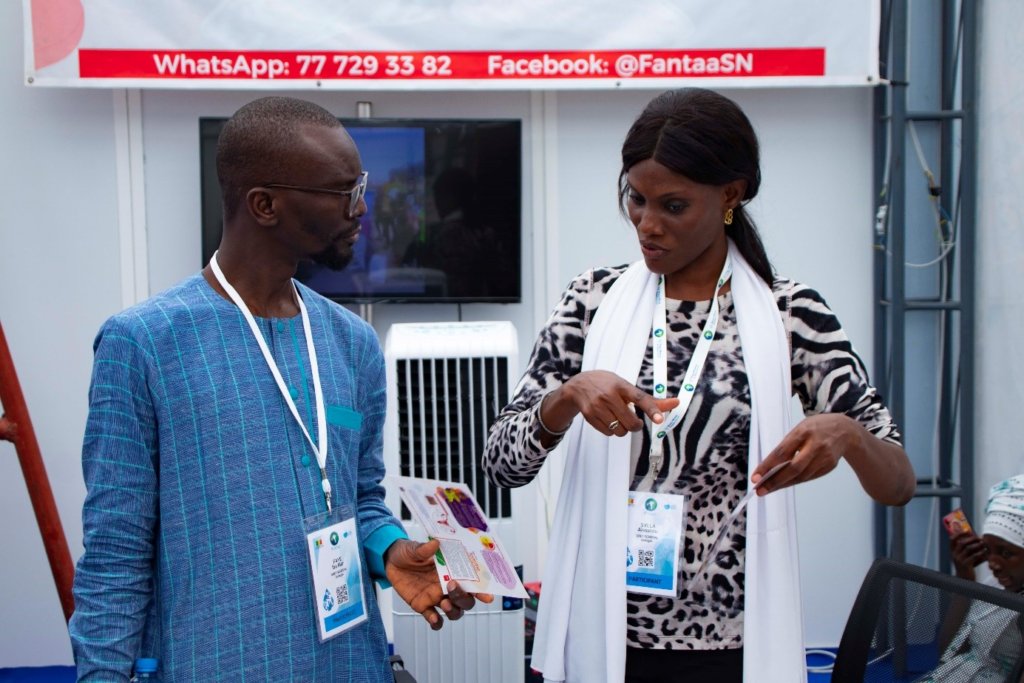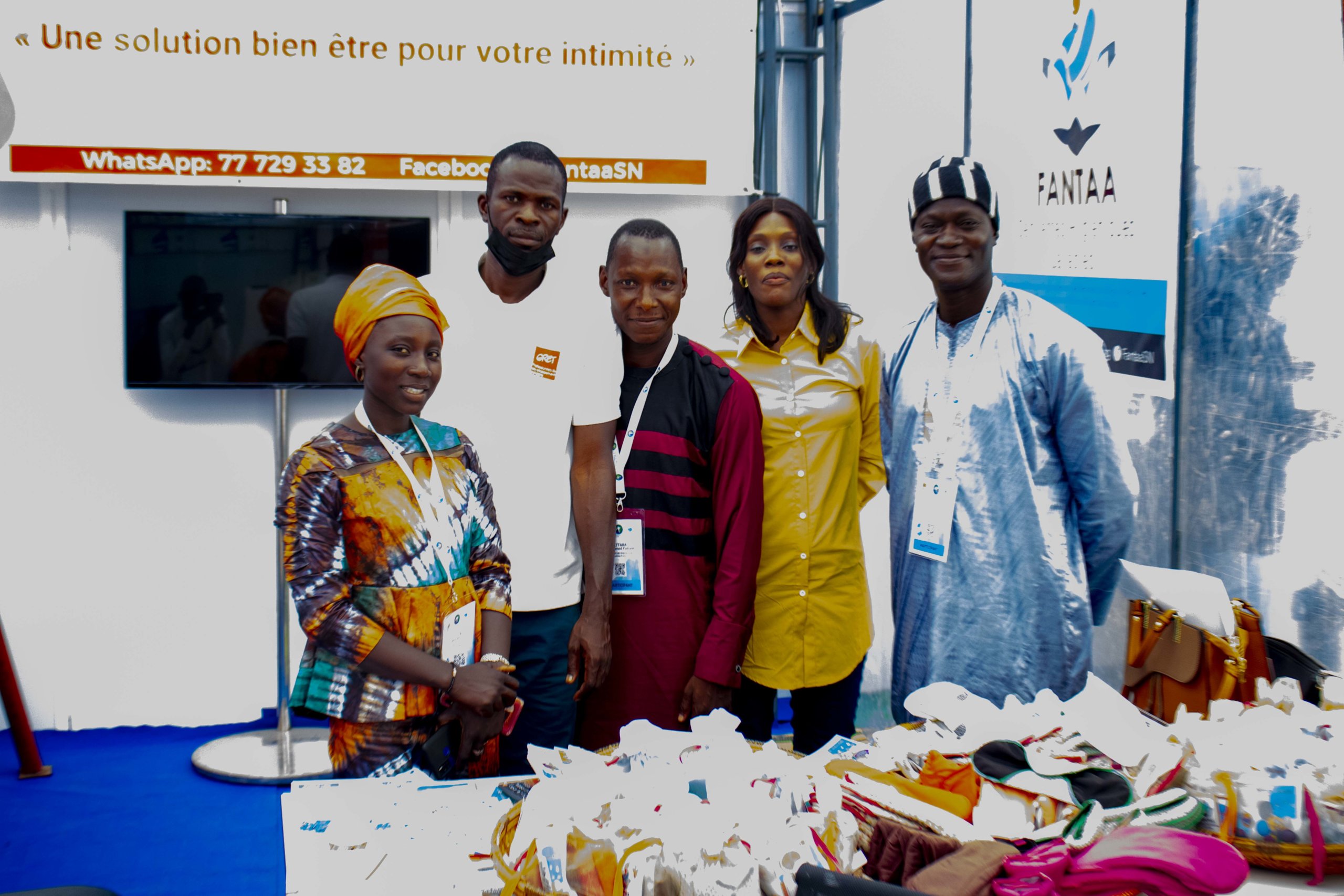Hygiene and sanitation are closely linked subject areas in which the development of infrastructure and techniques suited to local contexts and awareness-raising among populations are central. In order to improve supply of sanitation and respond to disadvantaged households’ demand, GRET is developing innovative solutions to make services more affordable and technically overcome local constraints. It proposes and supports the implementation of management methods that are in line with needs and favour the sustainability of service operation by strengthening the capacities of local stakeholders, in particular of small businesses.
The Dignité & Santé and Asap projects in Senegal are examples of how strengtheningentrepreneurial capacities can be a powerful lever to improve inhabitants’ living conditions.
An international experience that was duplicated locally in an integrated manner
In aiming for a paradigm shift to improve the rate of access to sanitation in rural areas, the Senegalese State adopted a national rural sanitation strategy in 2016, in which sanitation marketing plays a key role. This has led to the emergence of local sanitation entrepreneurship that acts as an interface between households (who became clients rather than beneficiaries) and projects. The objective is the gradual abandon of subsidies for demand in favour of supply by 2025. To achieve this the idea is for households to become familiar with these operators and use them for their individual or collective sanitation projects.
Since then, projects have been testing this new approach, in particular the Asap project, led by GRET with the support of the European Union in 15 communes in the Tambacounda region. With previous experiences in Madagascar and Burkina Faso, GRET attempted to duplicate the sanitation social marketing strategy in Senegal.
Out of the eight operators working as part of the Asap project, the one in the commune of Dialacoto particularly stood out with its methodological approach, and achieving 34% of sales of family latrines. In attendance at the Sanitation Village at the World Water Forum, Mouhamed Yatara, chairperson of the Adad Economic Interest Group (EIG) in Dialacoto, spoke about his background and shared his experience with the public and other Senegalese and international sanitation operators.

While GRET supported the operator by strengthening the capacities of his teams (techniques for the construction of sanitation facilities for builders, sales techniques for sales teams, entrepreneurial and management coaching for himself), his success can also be explained by integration of his activity into the problems encountered in his locality. Through the local association he represents, he invested in the fight against unemployment and poverty by supporting young people and women towards various job offers, wishing to participate in the development of the commune.
The other key factor in his success is social acceptance of his business via adaptation to context. In this way, although his action is economic, it also has an inclusive, social aspect, taking account of the rather low income levels of rural households and offering payment in several instalments for example. This “social” interpretation of the strategy is most likely the reason for his success.
GRET’s contribution was based on several technological innovations from its past experiences. For example, the prefabrication of various parts of a facility (slabs and nozzles), enabling time to be saved during assembly. Means of transport for people, materials and equipment (three-wheel motorbikes that are more suitable for rural transport) the costs of materials for the first facilities were prefinanced by the project and reimbursed as the business developed. In addition, the construction teams were trained and spread into groups per trade, making it possible to efficiently respond to clients’ requests in a timely manner.
Entrepreneurship as a showcase for inhabitants’ needs
The GRET teams’ indepth knowledge of social marketing is also a strength in this type of project. Since 2020, based on the same principle of intervention, GRET has been supporting the Fantaa EIG, through the Dignité et Santé project. The Fantaa EIG is run by a group of women in the Senegalese commune of Bani Israël. It develops, manufactures and sells washable sanitary towels for women and girls, a significant economic and social innovation ina rural context.
Given the lack of outlets and profitable economic diversification in rural areas, entrepreneurship is often perceived as a sustainable economic development opportunity, in particular via job creation.
GRET is the only NGO supporting women’s groups in this subject area in Senegal, and its strengthening of capacities (development and updating of business plans, simplified accounting and marketing) favoured the emulation of a highly organised, dynamic group with several teams (production, communication/awareness-raising, sales, treasury and stock management). This efficient organisation and the marketing strategies they implement today enables the women in the Fantaa EIG to facilitate the purchase of washable sanitary towels for women and girls outside of their original locality, and even outside of their region. Young and connected, in addition to traditional marketing, the women are also conducting dynamic communication via social networks (WhatsApp, Facebook, TikTok), aimed in particular at young people.
The cost of producing the sanitary towels does not generate high profit levels, but the women in the EIG opted for adeliberate social and solidarity approach, primarily preferring to work for their community. The implementation of financing mechanisms such as credit unions also favours access to these products for all women and girls in the locality, and enables strong involvement with the women’s groups they target. Each delivery includes awareness-raising and after-sales visits by the EIG’s sales teams. A certain level of solidarity is developing within the community vis-à-vis Fantaa’s activity, including among men. Given the confidence in the group and recognition of its professionalism, a lot of men are now buying its products for their wives and daughters. A positive global change in behaviour around menstrual hygiene is occurring in all layers of the population in the localities served by the business.

With this activity, the women are becoming autonomous, generating sustainable income, and are held in regard by the community. The profits they make cover their needs and contribute to household expenditure, in the same way as men’s incomes: a giant step towards equality!
The involvement of men contributed significantly to the women’s participation in the project. It was also observed that awareness-raising activities led by women had a strong impact on the appropriation and therefore the adoption of good practices around menstrual hygiene.
The success of the Fantaa EIG is now bringing new opportunities for diversification: nappies for babies/adults, menstrual underwear and panty liners are now on the agenda for this well-structured business, which is capable of adapting its organisation based on the market. Today the group’s sustainability seems on track and long-term projections for their activities are positive.
Although entrepreneurship is subject to many unforeseeable factors and failures, today these two successful experiences make it possible for GRET to construct and share knowledge on the subject, and refine its strategy for the development of social and solidarity businesses. Lastly, let us recall that initiatives designed locally will always be more suited to the context, needs and aspirations of populations than imported solutions, which are often less well accepted and less sustainable. For inclusive, sustainable development, the social and solidarity economy is a powerful lever for initiatives.



